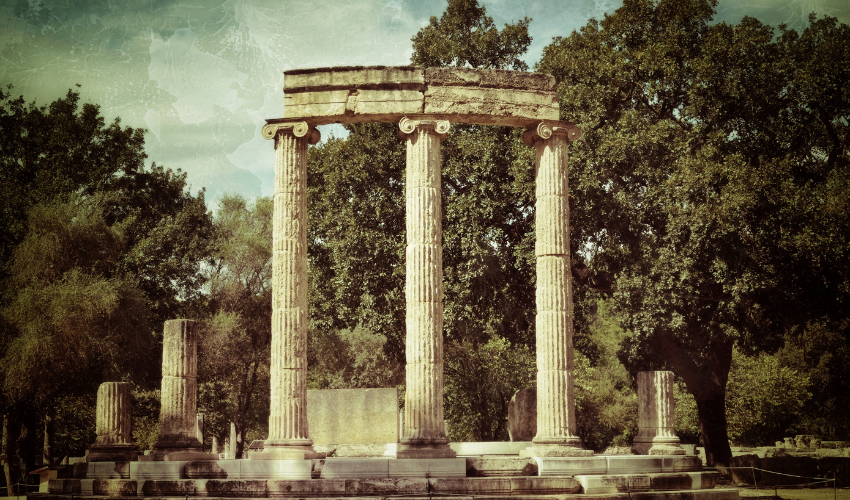The Olympic Games is a sporting event that has captured the hearts and minds of people all over the world. It’s an event that unites people from all walks of life and brings them together in the spirit of competition, camaraderie, and sportsmanship. But what’s the story behind this beloved sporting event? How did it all begin? In this article, we’ll explore the fascinating origins of the Olympic Games and how it has evolved over the centuries.
The Origins of the Olympic Games: A Deep Dive

Ancient Greece and the Birth of the Olympic Games
The Olympic Games can be traced back to ancient Greece, where it was held every four years in honor of the Greek god Zeus. The origins of the Olympic Games are steeped in myth and legend. Some stories claim that it was founded by the god Heracles, while others suggest that it was the work of Pelops, a mythical king of Olympia.
The first Olympic Games were held in 776 BC and were dedicated to Zeus. The games consisted of a single event – a footrace – and were held in Olympia, a sanctuary in the western Peloponnese region of Greece. Over time, more events were added to the Olympic Games, including chariot races, boxing, and wrestling.
The Olympic Games held great significance in ancient Greece. It was a time for people to come together in celebration and competition. It was considered a great honor to be a part of the games. The Olympic Games were also seen as a way to promote peace among warring city-states, as a truce was called during the duration of the games.
The Revival of the Olympic Games
After the fall of the Roman Empire, the Olympic Games declined in popularity. They eventually came to an end in the 4th century AD. It wasn’t until the 19th century that the idea of reviving the Olympic Games was first proposed. This idea was championed by a French educator named Baron Pierre de Coubertin. He believed that the Olympic Games could be used to promote physical education and international understanding.
In 1896, the first modern Olympic Games were held in Athens, Greece, with 14 nations participating in the event. The modern Olympic Games have since grown in size and scope, with thousands of athletes from all over the world coming together to compete in a wide range of sports.
The Evolution of the Olympic Games

Over the years, the Olympic Games have evolved in many ways. New sports have been added to the games, while some traditional events have been removed. The use of technology has also had a major impact on the Olympic Games, with advancements in equipment and training methods helping athletes to break records and achieve new levels of performance.
The Olympic Games have also had a significant impact on society, social issues, and human rights. From Jesse Owens winning four gold medals at the 1936 Berlin Olympics and breaking racial barriers to the first openly gay athlete, Greg Louganis, winning multiple gold medals in diving, the Olympic Games have served as a powerful platform for social progress and change.
Frequently Asked Questions (FAQs)
Why were the ancient Olympic Games held?
The ancient Olympic Games were held in honor of the Greek god Zeus.
How many events were there in the first Olympic Games?
The first Olympic Games had only one event, a footrace.
Who revived the modern Olympic Games?
The modern Olympic Games were revived by Baron Pierre de Coubertin, a French educator.
What is the significance of the Olympic Games in modern times?
The Olympic Games are considered a symbol of international cooperation. They promote physical education, as well as serving as a platform for promoting social issues and human rights.
How have the Olympic Games evolved over time?
The Olympic Games have evolved in terms of the number and variety of events, the use of technology, and its impact on society.
Conclusion
The origins of the Olympic Games can be traced back to ancient Greece, where it was held in honor of the Greek god Zeus. The Olympic Games served as a way to promote peace among warring city-states. It were considered a great honor to participate in. After its decline, the Olympic Games were revived by Baron Pierre de Coubertin in the 19th century. The first modern Olympic Games were held in Athens, Greece, in 1896. The Olympic Games have since evolved in many ways, from the number and variety of events to the use of technology, and its impact on society. It is truly an event that brings the world together. It promotes physical education and international understanding, and serves as a platform for promoting social progress and change.






















